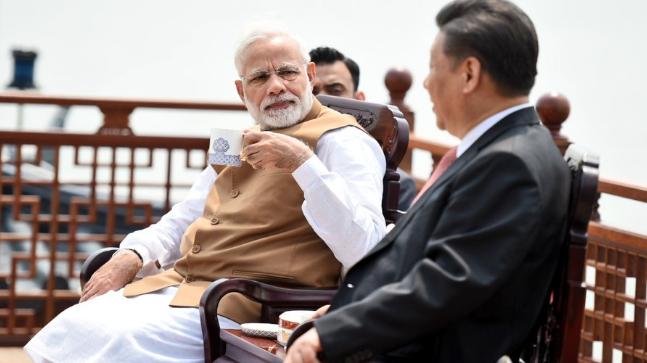India, sticking to its stand, has yet again declined an official invitation from China to the second edition of the Belt and Road Initiative (BRI) meet, which is scheduled to take place in April 2019. Previously, India had turned down a similar invitation to the first edition of BRI meet in 2017. It is noteworthy that every country in India’s neighborhood, except Bhutan, attended the first edition of this meet.
The Belt and Road Initiative (BRI) is a development strategy adopted by the Chinese government involving infrastructure development and investments in 152 countries and international organizations in Europe, Asia, Middle East, Latin America and Africa. The initiative aims at establishing a large market across borders for making full use of the potential of the countries involved.
India has always been of the opinion that the China-Pakistan Economic Corridor (CPEC), which is an important part of Belt and Road Initiative (BRI), disregards and undermines the sovereignty of India as it passes through the Gilgit-Baltistan region of the state of Jammu and Kashmir. Gilgit-Baltistan is currently under the illegal occupation of Pakistan.
However, China wants India to be a major player in the Belt and Road Initiative (BRI) as India, being the largest country in South Asia and the biggest economy in the region, has all the requisites to make the initiative a success. China’s hopes, of India joining BRI, took an upward turn after informal Wuhan Summit held between Prime Minister Narendra Modi and President Xi Jinping in April 2018.
India’s apprehensions also rise from the fact that even after the deadly attack at Pulwama, for which Jaish-e-Mohammed led by Masood Azhar claimed responsibility, China shamelessly used its veto to block India’s bid to list Masood Azhar as a global terrorist. This is the fourth time China has used its veto to side with Pakistan, undermining India’s as well as global apprehensions. Previously China had blocked the bid in 2009, 2016 and 2017 on the request of its all-weather ally Pakistan. China does this as a compulsion as the CPEC can’t go ahead without taking these terrorists on board. Pakistan based terror groups also have influence over Uyghur Muslim community living in Chinese province of Xinjiang.
In a PTI report, India’s Ambassador to China Vikram Misri told the state-run Global Times that “above all, connectivity initiatives must be pursued in a manner that respects sovereignty, equality and territorial integrity of nations”. India is clear on its view that it is all ready for engagements on infrastructure projects with China but wants China to respect the international norms.
It should be noted that recently, many countries started rethinking their participation in the initiative as the costs of the projects involved might rise to an unaffordable level. Also, the case of Sri Lanka’s Hambantota port served as a perfect cautionary example.

























